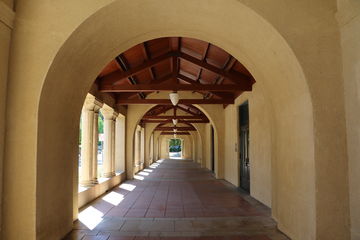The Fakir's Mask: Public Apparitions of Sai Baba in and around Mumbai

Division of International, Comparative & Area Studies
This talk about the modern Indian charismatic Sai Baba of Shirdi (1830s–1918) takes up the question of the apparent ubiquity of his likeness in contemporary Mumbai, where it circulates as the emblem of a universalistic religious attitude (with a specific emphasis on Hindu-Muslim comity). The argument builds on ethnographic research on the public streets, where a diverse constituency—-to be identified with shantytown residents who retain ties with their villages—-erects shrines housing images of Hindu deities and other protector figures. Foremost among these figures is Sai Baba. The inquiry encountered a dramatic turn when municipal officials, acting in the name of the public interest, initiated citywide demolitions of "illegal religious structures." The episode may be framed as a clash of rival geographies, with zones marked by Sai Baba to be identified as generically sacred space, ostensibly free of sectarian loyalties. But if the image’s address functioned in this way among a religiously diverse subaltern population, the claim proved unrecognizable in the eyes of the state.
William Elison is an IHUM Postdoctoral Fellow at Stanford. Trained at Chicago in the History of Religions Program, he specializes in the ethnography of religious life in subaltern India. He is currently working on a study of practices of marking and organizing sacred space in the slums, streets, and film studios of Mumbai. He has authored articles about local cultic practices and their mediation by public-cultural forms in slum-based and tribal communities and, in collaboration with two colleagues, has also begun writing a book about that landmark of 1970s Hindi cinema, Manmohan Desai's Amar Akbar Anthony.